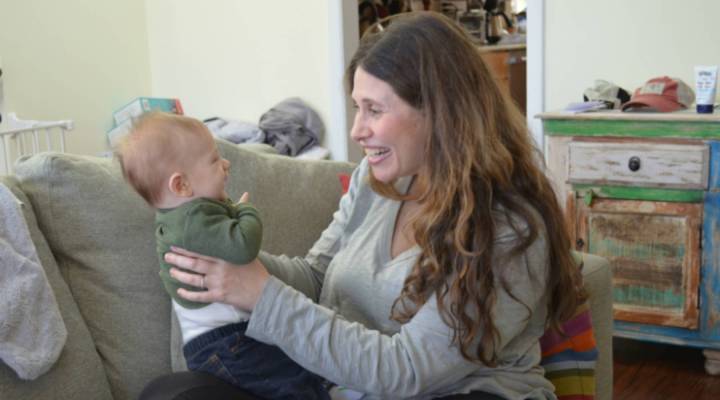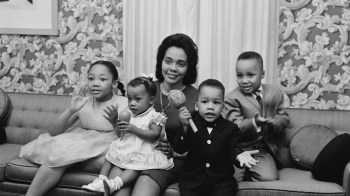
Helping babies deal with toxic stress

Bernice, who lives in New York, remembers housing insecurity, mental illness, drug use, and emotional and physical abuse in her childhood.
“In elementary school, I asked my stepfather for help on my math homework, and he actually punched me in the eye,” she said.
Bernice, who didn’t want us to use her last name, got pregnant when she was 18. Because she’d suffered childhood trauma and never learned how to cope, her baby was at risk of what experts call “toxic stress,” which is bad for your health.
Children living in persistent poverty, suffering from trauma, and lacking supportive, responsive care-giving are at increased risk of toxic stress.
That’s why the American Academy of Pediatrics says pediatricians should start screening patients for poverty, before the stress has taken its toll on the baby’s developing brain.
When a baby suffers from toxic stress, “the parts of their brain that are devoted to aggression and to fear get overdeveloped, and learning and memory parts of the brain are underdeveloped,” explained doctor and clinical psychologist Rebecca Schrag Hershberg.
This can lead to motor delays, learning disabilities, and even depression and heart disease.
Fortunately, there are some quick and cheap solutions. Pediatricians can connect families to services that address issues like substance abuse and housing insecurity. They can also give parents mental health care and parenting tips. That’s what Bernice gets at a program at Montefiore Medical Center in the Bronx in New York City.
“They taught me how to set a routine for my kids, where they come home from school, eat dinner. They get a bath; they play for a little bit; and then it’s bedtime,” she said.
Bernice is still living on welfare while her husband’s in rehab. But her depression is getting better, and she now reads to and plays with her four young kids. The program she attends—and others like it—cost money. But Dr. Rahil Briggs, at Montefiore, said the financial payoff is worth it.
The return on investment “shows up in the school setting, because the children don’t need special education,” she said. “And then it shows up in the juvenile justice setting, because the children don’t go into jail. And then it shows up, 40 years later, in the health care setting.”
In short, proponents say programs like this have the potential to have positive emotional, physical and economic outcomes for everyone involved.
There’s a lot happening in the world. Through it all, Marketplace is here for you.
You rely on Marketplace to break down the world’s events and tell you how it affects you in a fact-based, approachable way. We rely on your financial support to keep making that possible.
Your donation today powers the independent journalism that you rely on. For just $5/month, you can help sustain Marketplace so we can keep reporting on the things that matter to you.


















